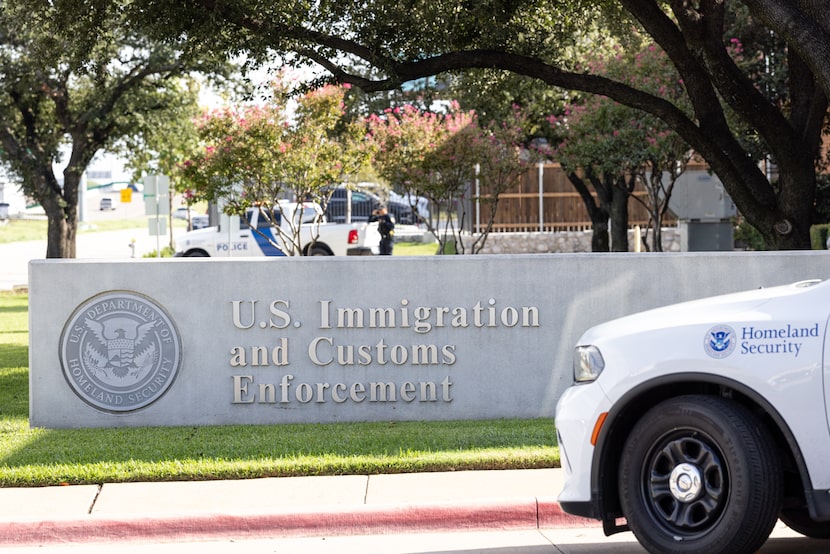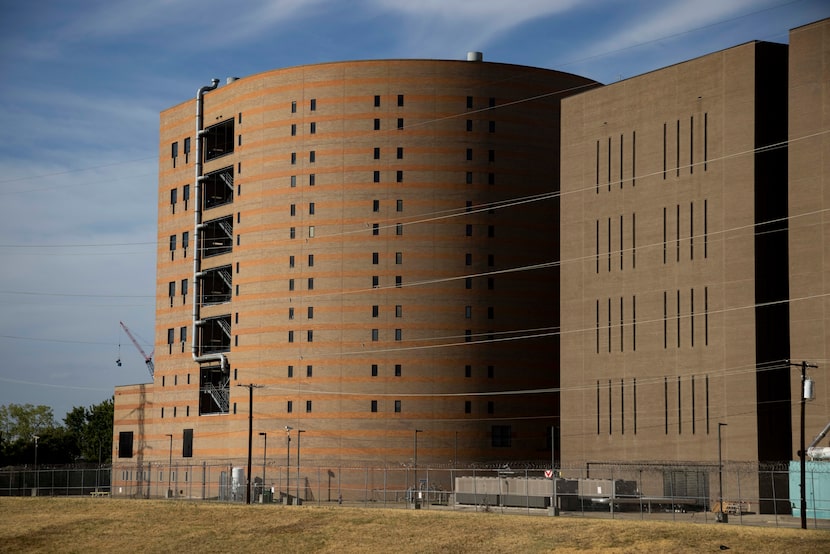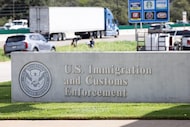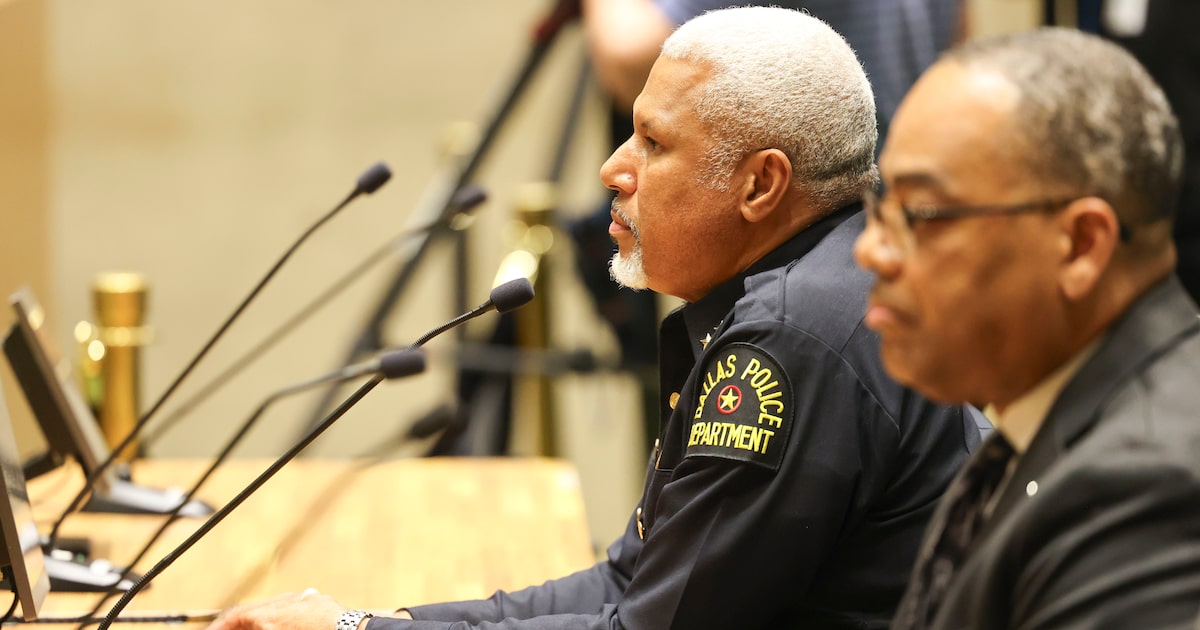Dallas police Chief Daniel Comeaux on Tuesday said he turned down a multimillion-dollar offer to join a federal program that would have authorized some of his officers to enforce federal immigration laws.
“We were contacted by the federal government, I think it was last week, or within the last two weeks, and we were offered $25 million to be a part of 287(g) and we said, absolutely not – no,” Comeaux said during the city’s Community Police Oversight Board meeting. “That was me who said that. Turned it down.”
The disclosure came as Comeaux fielded questions from the appointed board members, who for months have sought an audience with the chief to better understand Dallas police’s relationship with federal immigration authorities. The wide-ranging discussion, which spanned more than an hour, unfolded amid a rising national debate over immigration enforcement under the Trump administration, particularly in cities like Chicago.
The 287(g) program Comeaux referred to allows local and state law enforcement officers to inquire about an individual’s immigration status — authority typically reserved for federal agents.
Breaking News
Comeaux did not give his rationale in Tuesday’s meeting for why he declined the offer from the federal government. Members of the Community Oversight board also did not ask follow-up questions regarding the proposal.
Spokespeople with ICE and the Department of Homeland Security, ICE’s parent agency, did not immediately respond to emailed questions Wednesday morning. A Dallas police spokesperson also did not immediately provide responses to written questions about Comeaux’s remarks.
Most of the board’s questions centered on the department’s workings with ICE, while others sought information about the use of drones, license-plate reading technology, recruiting and community outreach efforts.
Comeaux also used the meeting to push back on what he described as false claims circulating on social media that Dallas police were working extensively with federal immigration authorities.
“So, with some of the things that are being posted and being said, it’s just absolutely not true, and it’s not happening in Dallas,” the chief said. “Now, is it happening in other places? Yes, but it’s not happening here.”

A sign outside of the main entrance to the Dallas Immigration and Customs Enforcement office after a shooting at the facility on Wednesday, Sept. 24, 2025, in Dallas.
Angela Piazza / Staff Photographer
Related
 County sheriff agreements
County sheriff agreements
On Oct. 1, DHS announced that it would fully reimburse the salary and benefits, including up to 25% of an officer’s annual salary, including overtime pay, for officers in the 287(g) program. Previously, the federal government would only cover the costs of training officers.
President Donald Trump’s administration has attempted to increase participation in the 287(g) program as part of the “mass deportation” campaign he ran on. The program has three models: two are enforced in jails and one allows local law enforcement officers to inquire about an individual’s immigration status while out on routine patrol. Local officers who are selected for the program must undergo training by the federal government.
At Tuesday’s meeting, Comeaux did not specify which model or models the federal government asked Dallas police to join.
At least 143 law enforcement agencies in Texas have signed 287(g) agreements. The majority of those participants are county sheriff’s offices, including in Tarrant County, according to a list of program participants published by ICE. In early August, the city of Keller signed an agreement, making it the state’s largest city to do so.
Gov. Greg Abbott signed Senate Bill 8 into law, which requires every Texas sheriff’s office with a jail to sign a 287(g) agreement with the federal government. Every sheriff’s office must sign into the agreement by Dec. 1, 2026, under SB 8.
Doug Sisk, a spokesperson for the Dallas County Sheriff’s office, did not respond to an emailed question Thursday afternoon asking if ICE had approached the agency for an agreement in recent weeks.

The North Tower Detention Facility (left) as part of the Lew Sterrett Justice Center photographed, on Tuesday, Aug. 16, 2022, in Dallas, TX.
Juan Figueroa / Staff Photographer
Related
 Chief says DPD’s work with ICE is limited
Chief says DPD’s work with ICE is limited
During Tuesday’s meeting, Comeaux offered the most detailed explanation yet of how Dallas police have worked with federal immigration agencies, saying the department had had “very little interaction” with them.
Comeaux cited as an example a raid last month by Homeland Security Investigations officials at Chicas Bonitas Cabaret, an adult entertainment club in northwest Dallas.
Homeland Security Investigations obtained a criminal search warrant for the business on suspicion of human trafficking and unlawful employment. During the operation, 41 people were detained — including 29 suspected of illegally working at the club — and were taken into custody by ICE officials with the Dallas Field Office for administrative immigration violations, according to an agency news release.
Related

At the request of federal officials, Comeaux said, Dallas police assisted in the operation by securing a perimeter around the business. “So we had nothing to do from DPD as part of that investigation at all other than protect the perimeter,” Comeaux said.
The department’s general orders — the internal rules governing police operations — state officers can not “stop or contact any person for the sole purpose” of determining immigration status, nor can they, unless under certain circumstances, ask the immigration status of those who are victims, witnesses or those who are reporting a crime.
Officers are “permitted, but not required,” to ask about the immigration status if a person has been lawfully detained or arrested, according to the general orders. To date, the chief said, immigration enforcement officials have not asked Dallas police to “go out and assist them in the streets.”
“Now, obviously, there’s federal agencies and they’re doing what they do, and we do what we do, but there’s no true collaboration that’s happening in Dallas and we’re trying to let everyone know that and that’s what’s been happening,” Comeaux said during the meeting.
The chief later said, “I just hope it continues to stay the way it’s been in Dallas because we haven’t had any issues.”

